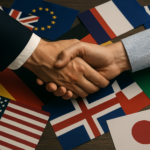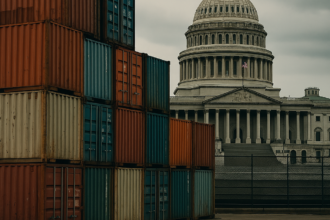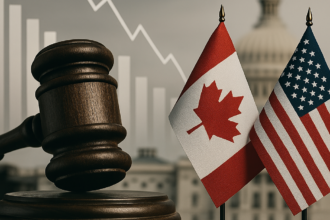With the weakening of multilateral frameworks, such as the WTO, the world has been witnessing an explosion of bilateral trade agreements. For many, this new trend represents a more “agile” and “effective” alternative to multilateralism hampered by politics.
But for those who see trade as an expression of freedom — and not as a bargain between governments — this change is not necessarily a step forward. On the contrary: bilateralism can be the new face of commercial management, with fewer universal rules and more institutionalized privilege.
When politics replaces the market
Bilateral agreements do not happen between people — but between states. This means that, instead of an environment with general rules for everyone, as the free market idealizes, we have a scenario where governments choose partners, impose conditions, define preferences.
It's like exchanging a field of free competition for a closed club where only those invited by the State can enter — and according to the terms it determines.
More power for the State, less freedom for the individual
The logic of bilateralism favors countries with greater bargaining power, and tends to consolidate asymmetries. Small nations or developing economies are more exposed to political pressures, extra-commercial demands and institutional manipulations.
The Public Choice School, of James Buchanan, already warned: when political interests control economic incentives, the result is always distorted.
Agreements cease to be instruments of openness and become strategic control instruments, driven by states — not by entrepreneurs, consumers or investors.
The deception of “negotiated sovereignty”
Advocates of bilateralism claim that it preserves “national sovereignty.” But what is sovereignty if not the right of individuals to exchange freely?
When two governments define, through political clauses and hidden barriers, who can import, export or invest, we are closer to a directed economy than of a free society.
As I would say Frederic Bastiat, “exchange is an act of freedom; preventing it is an act of domination.”
Conclusion
Bilateralism may seem efficient — but it is just a refined version of the old protectionism. Free markets depend not on the diplomacy of states, but on the freedom of individuals. True global integration will only be possible when trade is seen as a not as foreign policy, but as a voluntary relationship between free individuals.





